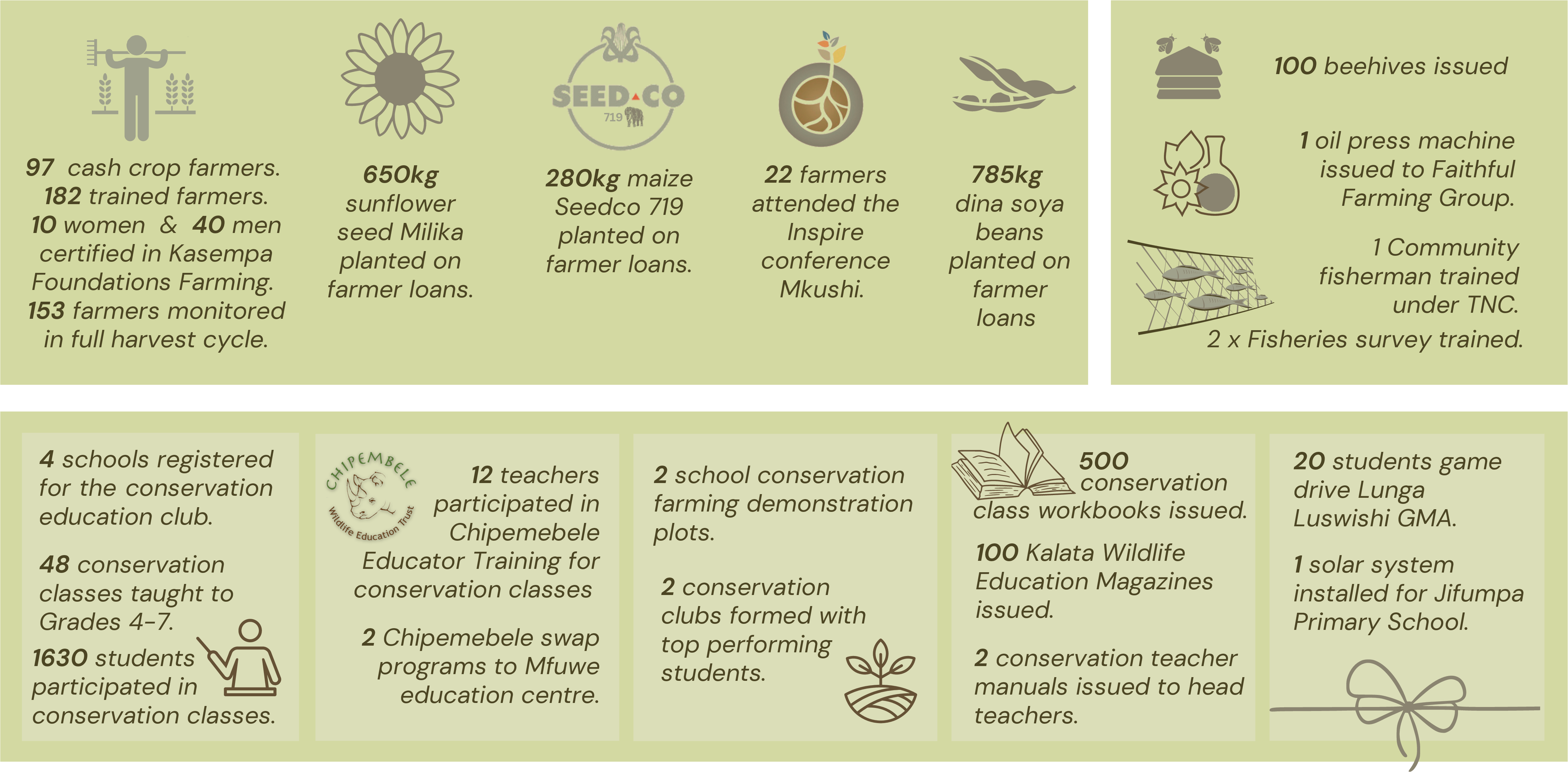Community
Community Vision
Building a lasting foundation in communities neighboring Lunga Luswishi GMA, for a better environment, a better community and a better life.
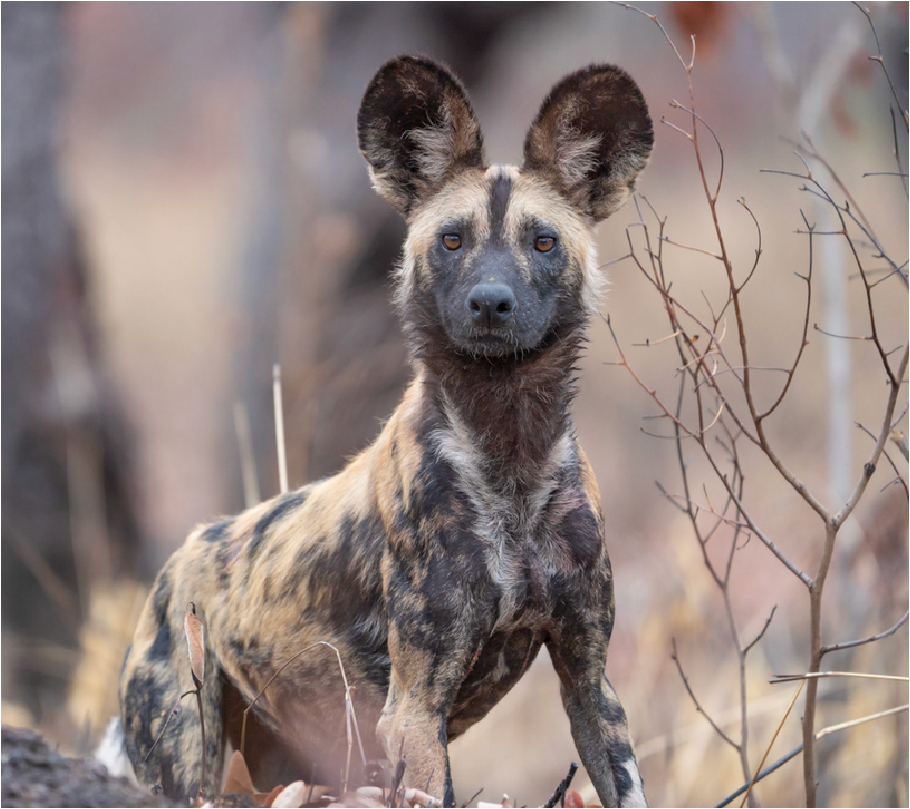
ProHunt Livelihood
Kasempa Lunga Luswishi, one of the country’s largest hunting concessions, spanning an impressive 6,000 square miles. This pristine landscape, bordered by the mighty Kafue and Lunga rivers, offers diverse habitats for a wide range of game species. ProHunt is committed to sustainable wildlife management and community development. By working closely with neighboring communities, the concession ensures the long-term health of the ecosystem and supports the livelihoods of those who depend on it.
Conservation Agriculture
CONSERVATION AGRICULTURE TOGETHER WITH FOUNDATIONS ZAMBIA aims to support all community members interested in improving their livelihoods through sustainable agricultural practices. This includes establishing a Demo Plot to showcase and teach the best practices of conservation agriculture using the Foundations for Farming model.
EXPAND TO READ MORE
The initiative encourages the cultivation of profitable cash crops as alternatives to maize, which can also help reduce human-elephant conflict. Furthermore, it emphasizes Conservation Education within schools and community groups, promoting “one health” principles. Finally, the program organizes Events and Activities to facilitate the sharing of ideas, resources, and information related to healthy and sustainable living, encompassing Conservation, Farming, Family, Finance, and Health.
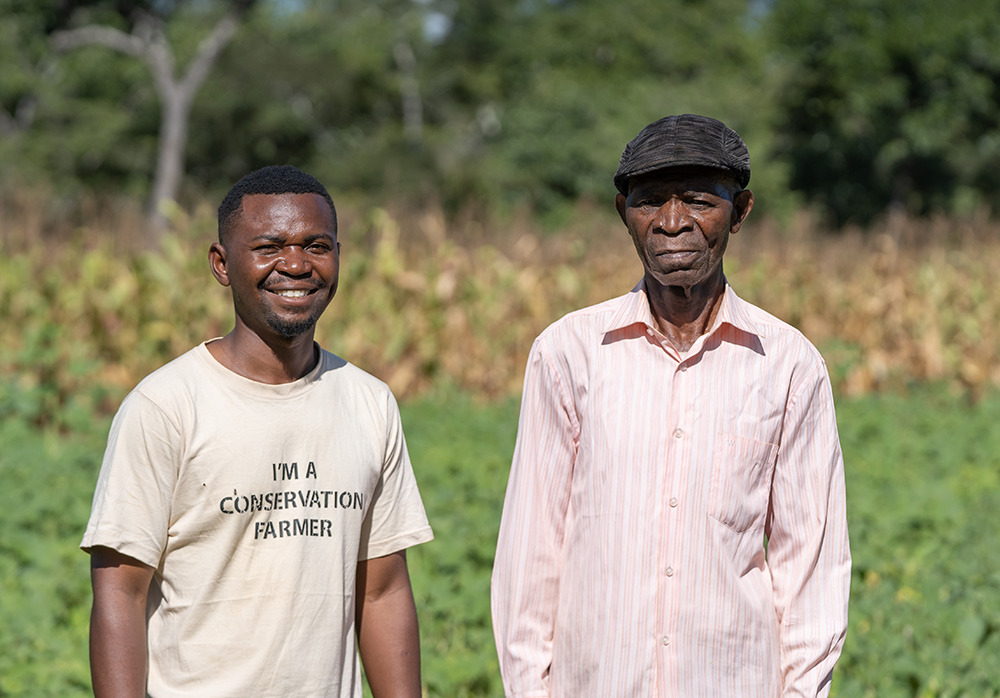
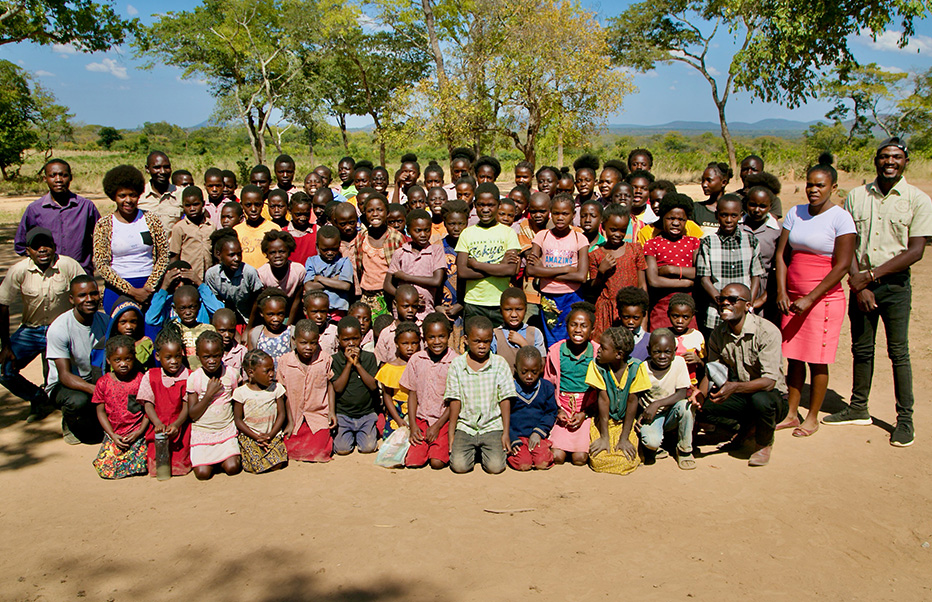
Conservation Education
Our program fosters environmental awareness within the community schools by educating children about the value of wildlife and how tourism revenue generated from healthy wildlife populations directly funds community projects. We emphasize the importance of education for future employment opportunities, particularly within the conservation sector.
EXPAND TO READ MORE
“One Health” principles are integrated into the curriculum, highlighting the interconnectedness of human, animal, and environmental health. The program includes engaging activities like student and community game drives to foster appreciation for wildlife and mitigate human-wildlife conflict. Twice annually, the “Chipemeble Education Swap Program” brings students from other schools to visit village schools, promoting conservation and Mushingashi’s sustainability efforts. This comprehensive program covers topics like ecosystems, fish, and animals, culminating in Conservation Club Tests for participating students. Furthermore, we organize career days, like the one at Kafwikamo School where Elliud presented to 250 students and teachers, showcasing career paths within the conservation sector. The program is implemented through monthly conservation club meetings, school-based education programs, game drives, and the ongoing construction of an education center on our property.
Sustainable Business
To support faithful and successful conservation farmers, this program focuses on developing sustainable businesses. This includes initiatives like beekeeping, where farmers can transition from traditional log hives to more efficient Kenya Top Hives to increase honey production and generate “organic registered” honey sales for additional income.
EXPAND TO READ MORE
Furthermore, the program supports the establishment of local oil presses to provide affordable seed oiling services, creating a profitable venture for farmers and increasing access to nutritious oils for the community. Other key areas of focus include promoting poultry farming (Village Chickens) to ensure a reliable source of protein and generate income, and supporting Community-Based Natural Resource Management for sustainable fisheries, enhancing local food security and creating economic opportunities for community members.
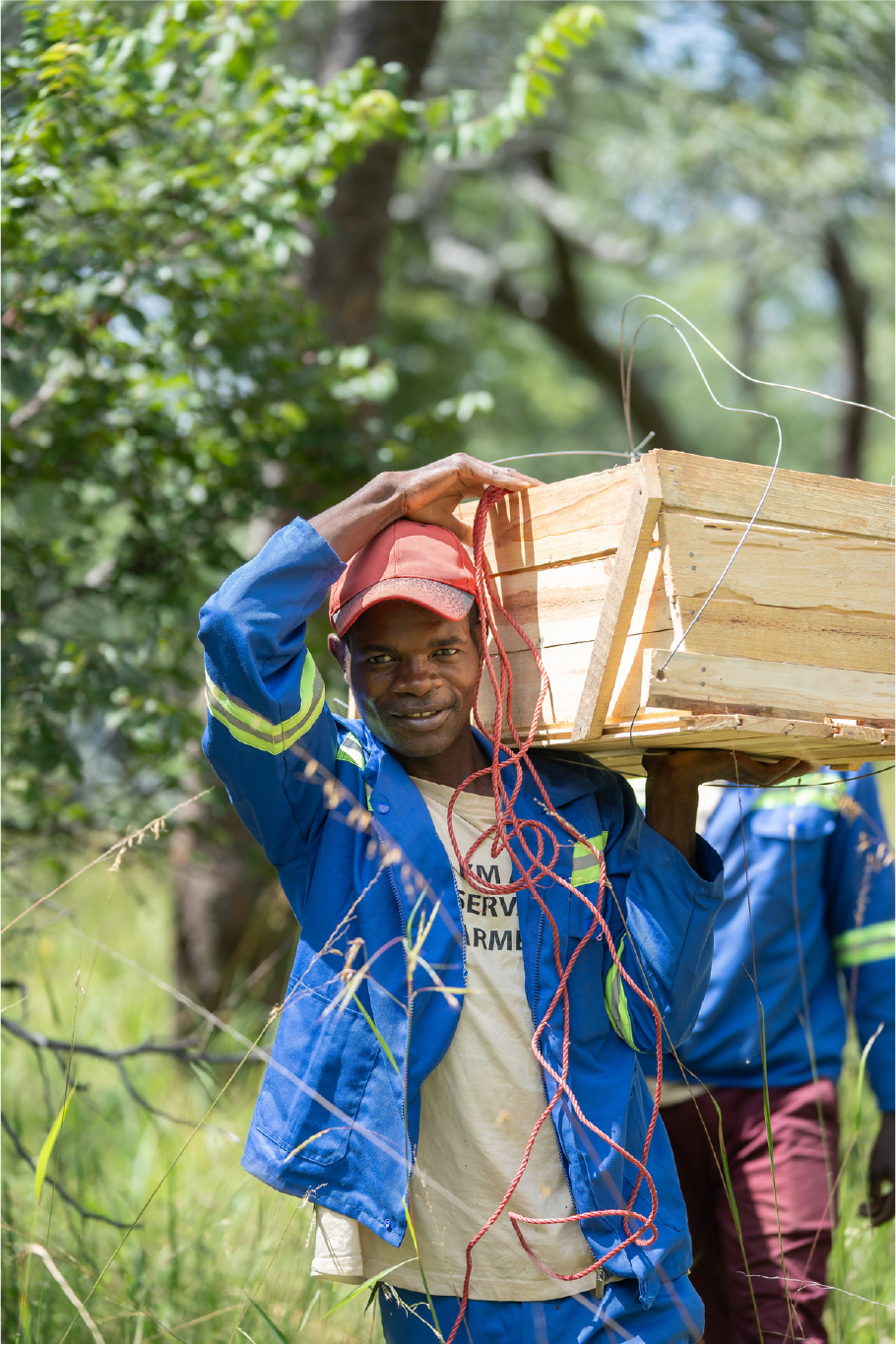
Our Progress
A One Health Approach to Community Development
Our One Health approach recognizes the interconnectedness of human, animal, and environmental health. By collaborating with communities, we’re improving livelihoods, protecting wildlife, preserving environment. conservation farming model education programs are key to building a healthier more sustainable future.


